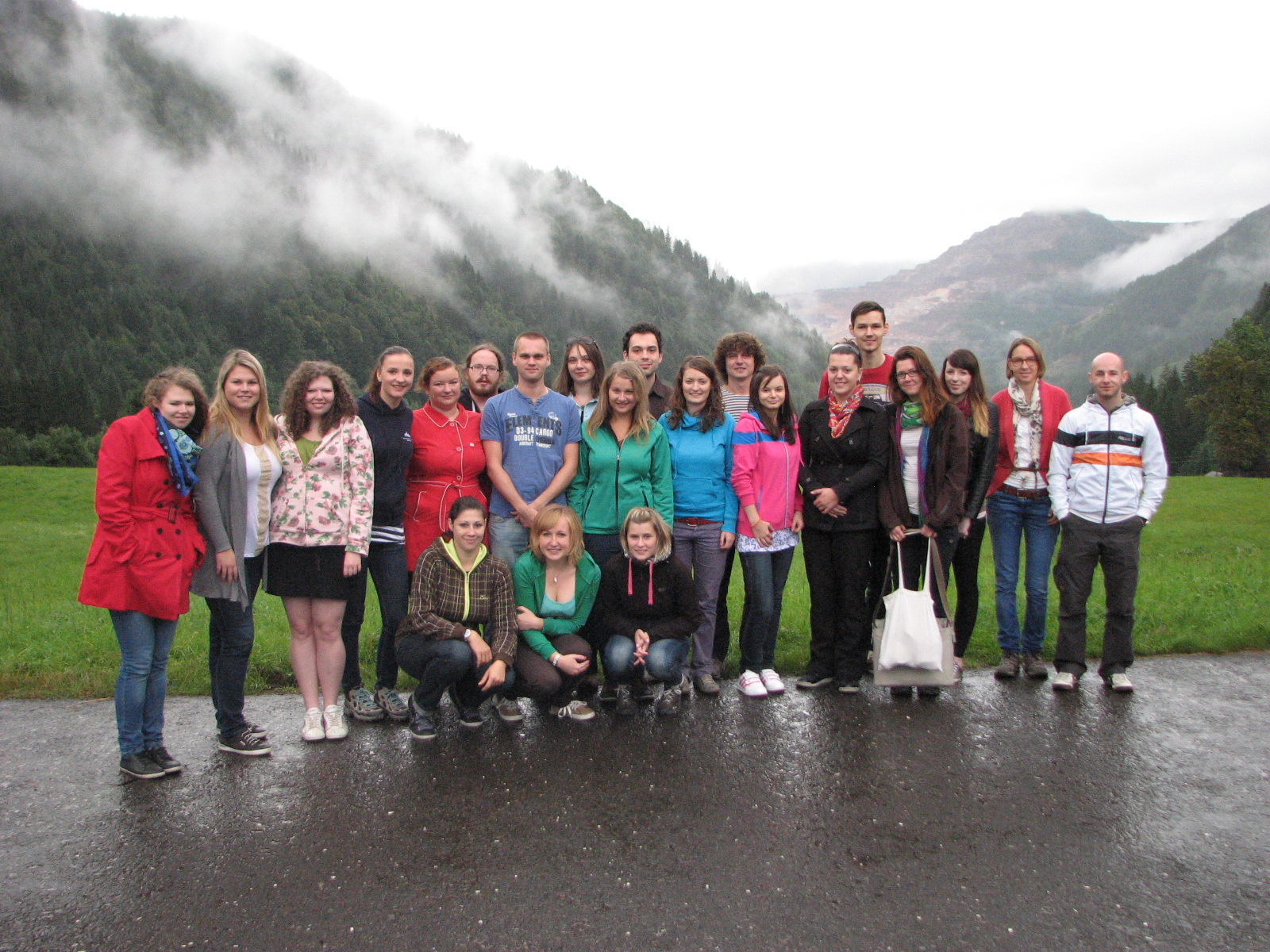Projekt ukončen, aktivity sítě pokračují
Projekt Mezioborová síť udržitelného rozvoje byl úspěšně ukončen 30. 4. 2014, aktivity sítě však nadále pokračují.
Tyto původní stránky projektu budou aktualizovány pouze ve výjimečných případech, pro pokračování aktivit je třeba přejít na následující webové stránky:
Regionální centrum expertízy Česko - pro další spolupráci subjektů v Česku
COPERNICUS Alliance - pro mezinárodní spolupráci
Mezinárodní projektu UE4SD (běžel v letech 2013-2016)
Recenzovaný časopis Envigogika
Austrian and German good sustainability practice inspires Czech students

A total of 19 students from Masaryk, Palacky, Jan Evangelista Purkyně universities and the Technical University in Liberec led by two staff members from the Charles University Environment Center embarked upon a five-day field trip to the city of Graz and the wider Styrian region on Sunday, 8 September, and returned on Friday, 13 September. This was the third sustainability field trip organised by the Environment Center as part of the MOSUR project, and the second that had been undertaken in Styria with the assistance of the Center’s partners at Karl Franzens University (the previous having taken place in September 2012). Another field trip was made to the Lower Saxon city of Lueneburg in Germany in June 2013 in cooperation with Leuphana University of Lueneburg.
This last trip was the largest to date and provided those students who participated with a range of examples of how the Austrians apply the sustainable development concept in practice, from waste management, to support and promotion of regionally-produced products, to development of renewable energy sources. The main purpose of the trips is not only to introduce or build upon Czech students’ basic knowledge of sustainability, but also to inspire them take home real life examples of how the environmental, economic and social aspects of our lives can be made to work in harmony with each other without restricting future generations’ access to the same benefits we enjoy.
To help track and gauge the impact the field trips make on students, they are asked to undertake a number of assignments before, during and after the excursions take place. This includes pre- and post-excursion surveys to measure their understanding of sustainability, brief explanations of the meaning of sustainability to them on a customised wiki page, and written assignments completed as part of a group exercise critiquing the information received as part of the week’s programme and then applying the examples cited to the Czech context. The findings that will ensue from the questionnaires on students’ knowledge of sustainability prior to the trips and afterwards will form the basis of a peer-reviewed academic research article.
The programme for the most recent visit to Graz certainly provided a rich variety to sustainable development examples to students. Each day was more or less devoted to one particular topic, starting with a class-based introduction to the concept of sustainability in general and then as it applies to Austria at the national level, Styria at the regional level, the city of Graz at the local level, and the University of Graz at the institutional level. The second day took in the strategy of the Vulkanland, a distinct part of Styria, and its goal of supporting local enterprise by focusing on locally produced quality products, including the world-famous organic and fair trade chocolate manufactured at the Zotter factory near Riegersburg, and the efforts of the Kaindorf microregion to fashion itself as a fully sustainable area in its own right. The third day concentrated on waste management systems and local renewable sources of energy with onsite visits to the headquarters of the Saubermach waste management company, and the association of renewable energy producers in Mureck where local stakeholders produce biodiesel and biogas from local grown crops and organic waste. The penultimate day shifted the students’ focus away from the Graz region to the mountains near the town of Eisenerz and how the local inhabitants have been attempting to deal with the legacy of the town’s iron mining industry, which included comparisons with the brown coal mining legacy of north-west Bohemia. On the last day students visited the Gesäuse National Park in the mountainous region of Upper Styria where they learned about how the park’s administration has put in place a specific environmental education programme to teach the wider public not only about what is to be found in the park itself, but also about sustainable living globally.
More information about the sustainability field trips to Graz and Lueneburg can be viewed at the student wikis dedicated to each individual excursion:
